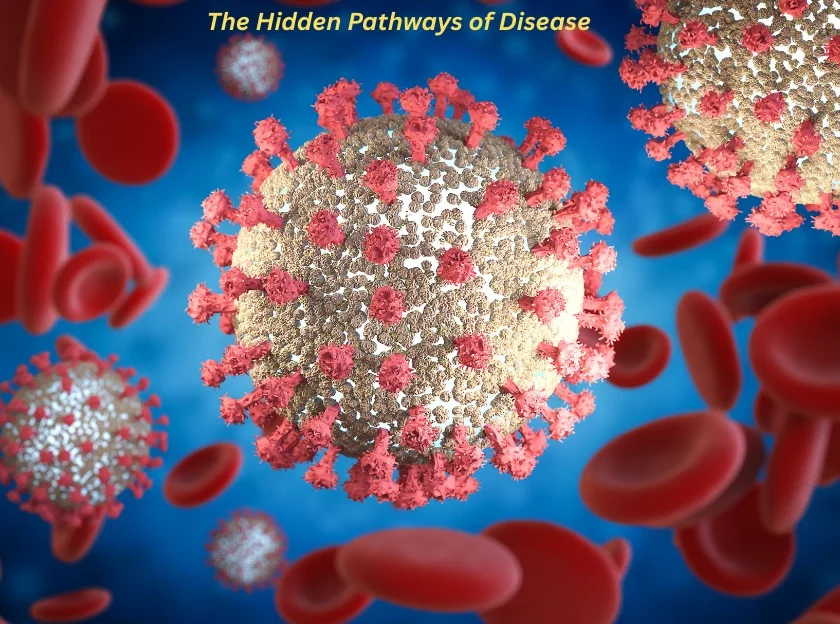In the world of health discussions, one question keeps resurfacing: Is Diabetes a Disease or a Curable Challenge? For millions around the globe, diabetes is more than just a medical term — it’s a daily reality. Some view it as an irreversible chronic condition, while others believe it’s a manageable hurdle that can be overcome with the right lifestyle adjustments and medical advancements.
Diabetes, in its various forms — Type 1, Type 2, and gestational — impacts how your body regulates blood sugar (glucose). While the medical community traditionally classifies it as a chronic disease, growing research and patient success stories are challenging that narrative. In this article, we’ll unpack the science, the hope, and the mindset shifts surrounding diabetes to answer the question once and for all.
Understanding Diabetes: A Medical Perspective
From a strictly medical standpoint, Is Diabetes a Disease? The answer is yes. The American Diabetes Association (ADA) and the World Health Organization (WHO) categorize it as a chronic, metabolic condition that affects insulin production and glucose regulation.
- Type 1 Diabetes: An autoimmune condition where the body attacks insulin-producing cells in the pancreas.
- Type 2 Diabetes: A metabolic disorder where the body becomes resistant to insulin or doesn’t produce enough of it.
- Gestational Diabetes: Temporary glucose intolerance during pregnancy, which may resolve after birth but increases future risk.
Globally, over 500 million people are living with diabetes, a number expected to rise significantly by 2050. The medical consensus is that while Type 1 diabetes currently has no cure, Type 2 diabetes can often be managed — and in some cases reversed — through lifestyle changes, medication, and early intervention.
The Negative Side: Why Diabetes is Considered a Serious Disease
If you’ve ever wondered why diabetes is treated as a disease rather than a simple health challenge, the answer lies in its potential consequences. Left uncontrolled, it can cause:
- Heart disease & stroke: Diabetes doubles the risk of cardiovascular complications.
- Kidney damage: High glucose levels strain kidney function over time.
- Vision loss: Diabetic retinopathy can lead to partial or complete blindness.
- Nerve damage: Neuropathy can cause pain, tingling, or numbness in extremities.
Even when blood sugar is managed, diabetes often demands constant monitoring, dietary restrictions, and lifestyle vigilance. The emotional and psychological toll — from anxiety about blood sugar spikes to the fear of long-term complications — makes it more than a minor inconvenience.
The Positive Outlook: Can Diabetes Be Managed or Reversed?
Here’s where the conversation shifts. While Type 1 diabetes remains incurable, Type 2 diabetes is increasingly seen as a condition that can be significantly improved — or even put into remission — through proactive measures.
Lifestyle changes that make a difference:
- Balanced diet: Low-glycemic foods, high fiber, and nutrient-rich meals stabilize blood sugar.
- Regular exercise: Even 30 minutes a day improves insulin sensitivity.
- Weight management: Reducing excess body fat helps the body use insulin more effectively.
- Stress control: Meditation, yoga, and breathing exercises can reduce glucose fluctuations.
Recent studies show that intensive lifestyle programs and bariatric surgery have helped many individuals achieve diabetes remission. This means their blood sugar levels return to non-diabetic ranges without medication for extended periods.
Breaking Down the Myths Around Diabetes
Misinformation clouds the way people think about diabetes. Let’s tackle a few common myths:
- Myth 1: Diabetes is always permanent
Fact: Type 2 diabetes can sometimes be reversed with the right changes. - Myth 2: Only overweight people get diabetes
Fact: Genetics, age, and other factors play a major role too. - Myth 3: Sugar alone causes diabetes
Fact: Excess calorie intake, poor diet quality, and inactivity are bigger culprits.
Dispelling these myths is crucial. Believing in outdated or false ideas can delay diagnosis, treatment, and the lifestyle changes necessary for better health outcomes.
Modern Medical Advancements and Hope for the Future
If the question “Is Diabetes a Disease?” feels discouraging, remember that science is on the move. In the past decade, advancements in treatment and monitoring have transformed how people live with diabetes.
Notable breakthroughs include:
- Continuous glucose monitors (CGMs) for real-time tracking.
- Smart insulin pumps that automatically adjust doses.
- GLP-1 receptor agonists that improve insulin function and aid weight loss.
- Stem cell therapy aimed at regenerating insulin-producing cells.
There’s even ongoing research into a functional cure for Type 1 diabetes using immune system modulation and pancreas transplantation. While not available to everyone yet, these developments fuel hope for a future where diabetes management is simpler — or even unnecessary.
Diabetes as a Lifestyle Challenge, Not Just a Disease
When reframed, diabetes can be seen as a lifestyle challenge — an ongoing test of discipline, adaptability, and resilience. This shift in perspective helps patients feel empowered rather than defeated.
- Mindset matters: Viewing yourself as an active participant in your health journey can increase motivation and adherence to treatment.
- Community support: Joining diabetes support groups, both online and offline, provides shared experiences and encouragement.
- Self-monitoring: Tracking diet, exercise, and glucose levels creates awareness and accountability.
- Goal-setting: Small, achievable milestones can lead to long-term health improvements.
The key is to stop seeing diabetes as a sentence and start viewing it as a call to action for better living.
What It All Means
So, Is Diabetes a Disease or a Curable Challenge? The truth is, it’s both. Medically, diabetes — especially Type 1 — fits the definition of a chronic disease. But for many, particularly those with Type 2 diabetes, it’s also a challenge that can be met head-on, managed effectively, and in some cases, reversed.
Hope lies in early detection, consistent effort, and a willingness to adapt. The tools, knowledge, and medical innovations we have today mean that a diabetes diagnosis is not the end — it’s an opportunity to rewrite your health story.
Take action today: Get tested, learn your numbers, and take the first step toward a healthier, more empowered life.





